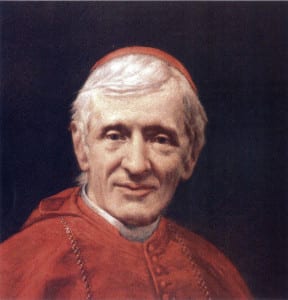The Art of Writing
“Study and meditation being imperative, can it be denied that one of the most effectual means by which we are able to ascertain our understanding of a subject, to bring out our thoughts on it, to clear our meaning, to enlarge our views of its relation to other subjects, and to develop it generally, is to write down carefully all we have to say about it? People indeed differ in matters of this kind, but I think that writing is a stimulus to the mental faculties, to the logical talent, to originality, to the power of illustration, to the arrangement of topics second to none. Till a man begins to put down his thoughts about a subject on paper he will not ascertain what he knows and what he does not know; and still less will he be able to express what he does know…”
“A great author, gentlemen, is not one who merely has a copia verborum, whether in prose or verse, and can, as it were, turn on at his will any number of splendid phrases and swelling sentences; but he is one who has something to say and knows how to say it… He is master of the two-fold Logos, the thought and the word, distinct, but inseparable from each other… The aim is to give forth what he has within him; and from his very earnestness it comes to pass that, whatever be the splendor of his diction or the harmony of his periods, he has with him the charm of an incommunicable simplicity… He writes passionately, because he feels keenly; forcibly, because he conceives vividly; he sees too clearly to be vague; he is too serious to be otiose; he can analyze his subject, and therefore he is consistent; he has a firm hold of it, and therefore he is luminous. When his imagination wells up, it overflows in ornament; when his heart is touched, it thrills along with his verse. He always has the right word for the right idea, and never a word too much. If he is brief, it is because few words suffice; when he is lavish of them, still each word has its mark, and aids, not embarrasses, the vigorous march of his elocution…” —- Blessed John Henry Newman, The Idea of a University

John Henry Newman
Few persons can match the eloquence of Cardinal Newman’s account of the art of writing.
His statements articulate what is close to the essence of excellent writing and underline the importance of writing in the educational undertaking that is the Honors College. We realize, of course, that student writing is strengthened and developed through frequent writing and by keen awareness of its intrinsic merits as well as those practical and personal benefits which emerge beyond the college experience itself. Accordingly, writing focused upon exposition, analysis, interpretation, argumentation, and persuasion is emphasized in Textual Analysis courses as well as in the courses entitled Trivium I and Trivium II. In all of these regards, our aims are consciously and deliberately high. At the same time, we realize that the college years often sow seeds that do not grow until tested in the forge of experiences and challenges taken on in life after college. For, as John Henry Newman suggests in The Idea of a University, the crucial link between clear understanding and fine writing, while never guaranteed, must surely be enhanced by time spent in the company of great authors who have themselves been masters of this art.



